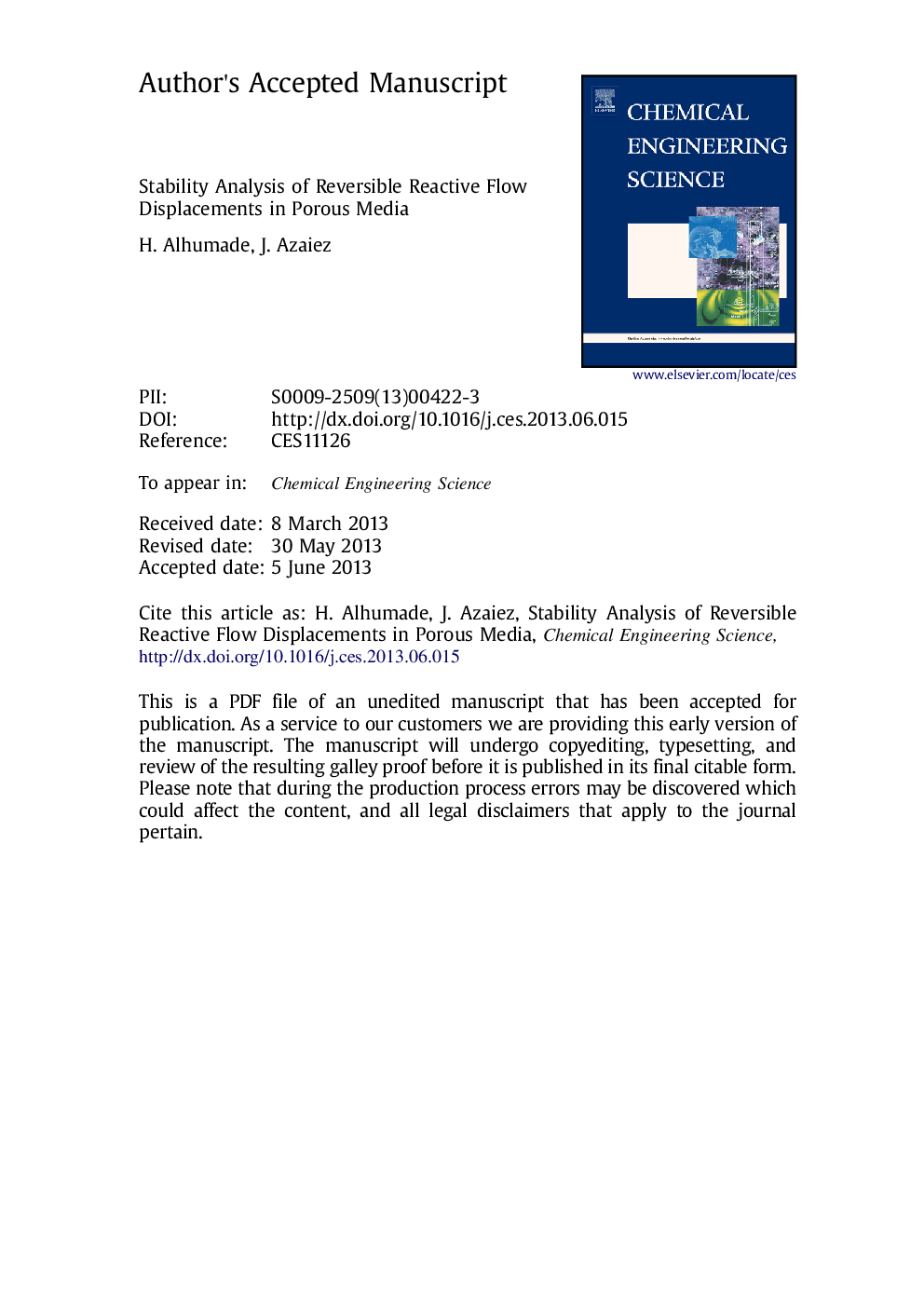| Article ID | Journal | Published Year | Pages | File Type |
|---|---|---|---|---|
| 6591918 | Chemical Engineering Science | 2013 | 28 Pages |
Abstract
The effects of reversibility on the viscous fingering of miscible reactive flow displacement processes are examined. A model, where the viscosity mismatch between the reactants and the product triggers instability is adopted. The stability of the flow displacement is examined in the case of initial sharp front between the two reactants as well as when the reactants are given time to diffuse. In the case of a sharp front, a transformation allows to map the reversible case to that of the non-reversible one and an analysis of the effects of chemical reversibility is presented. In general, faster attenuation in the development and growth of instability is reported as the reversibility of the chemical reaction increases. However, it was found that reversibility can actually enhance the instability when a critical reversibility coefficient that depends on the mobility ratios of the chemical species, is exceeded. Different trends for the effects of reversibility were obtained for initially diffusing chemical reactants and the results are discussed in terms of the mobility ratios of the different species. It was found that the effects of stronger chemical reversibility on the stability of the flow are qualitatively similar to those induced by slower chemical reactions in non-reversible cases, however quantitative differences are reported and discussed.
Related Topics
Physical Sciences and Engineering
Chemical Engineering
Chemical Engineering (General)
Authors
H. Alhumade, J. Azaiez,
